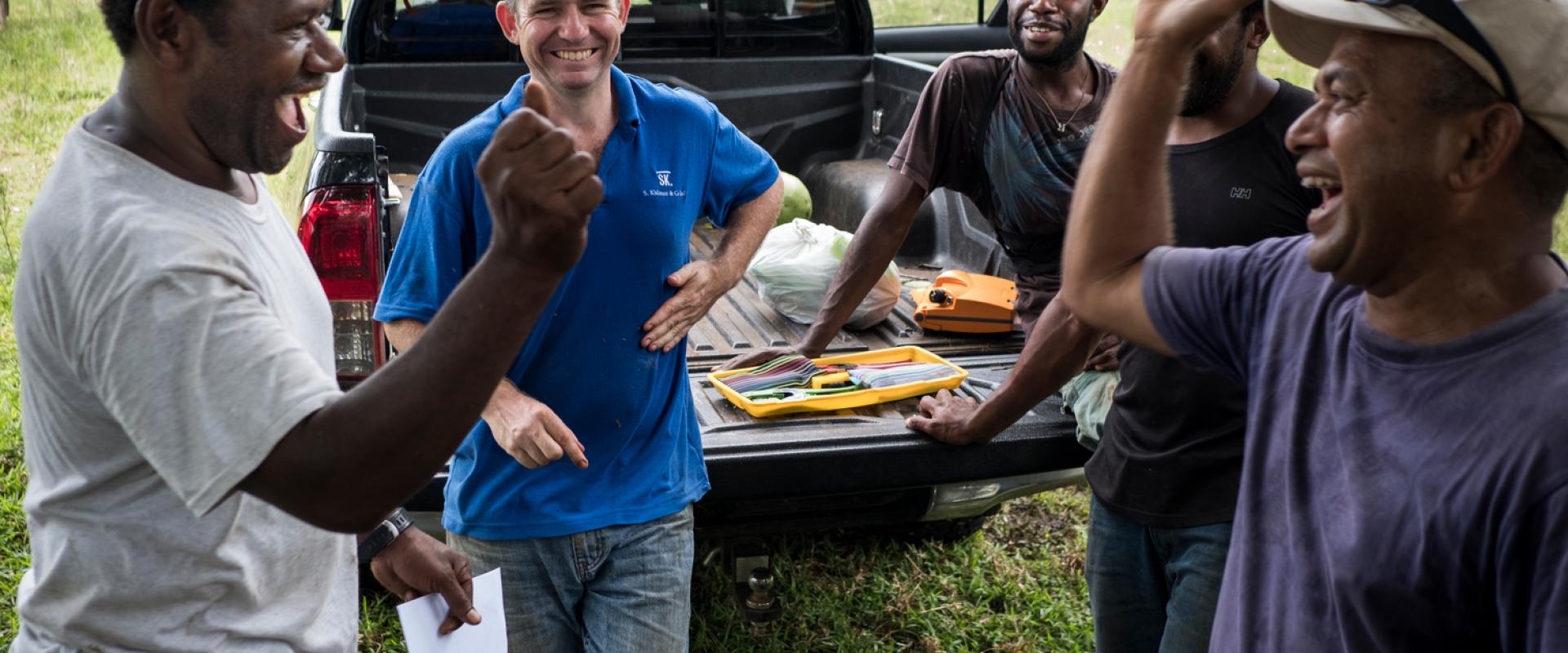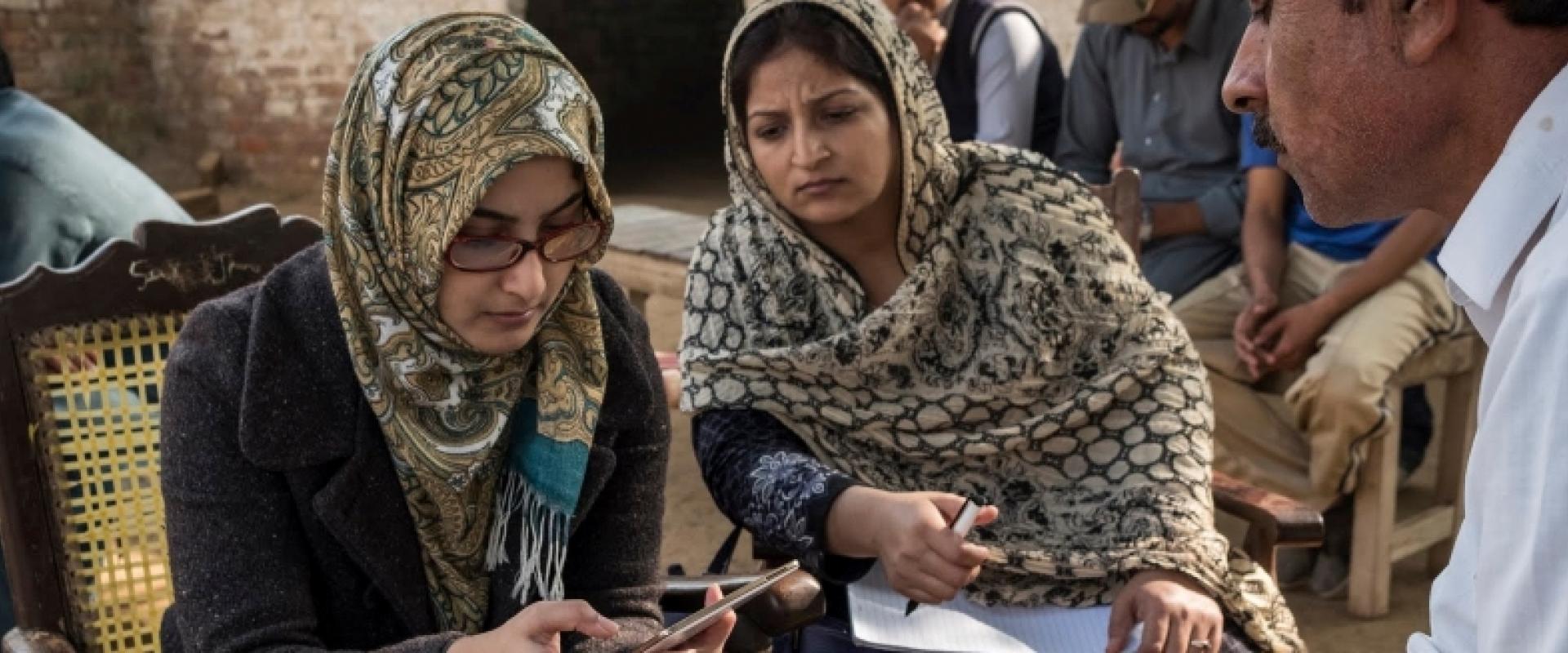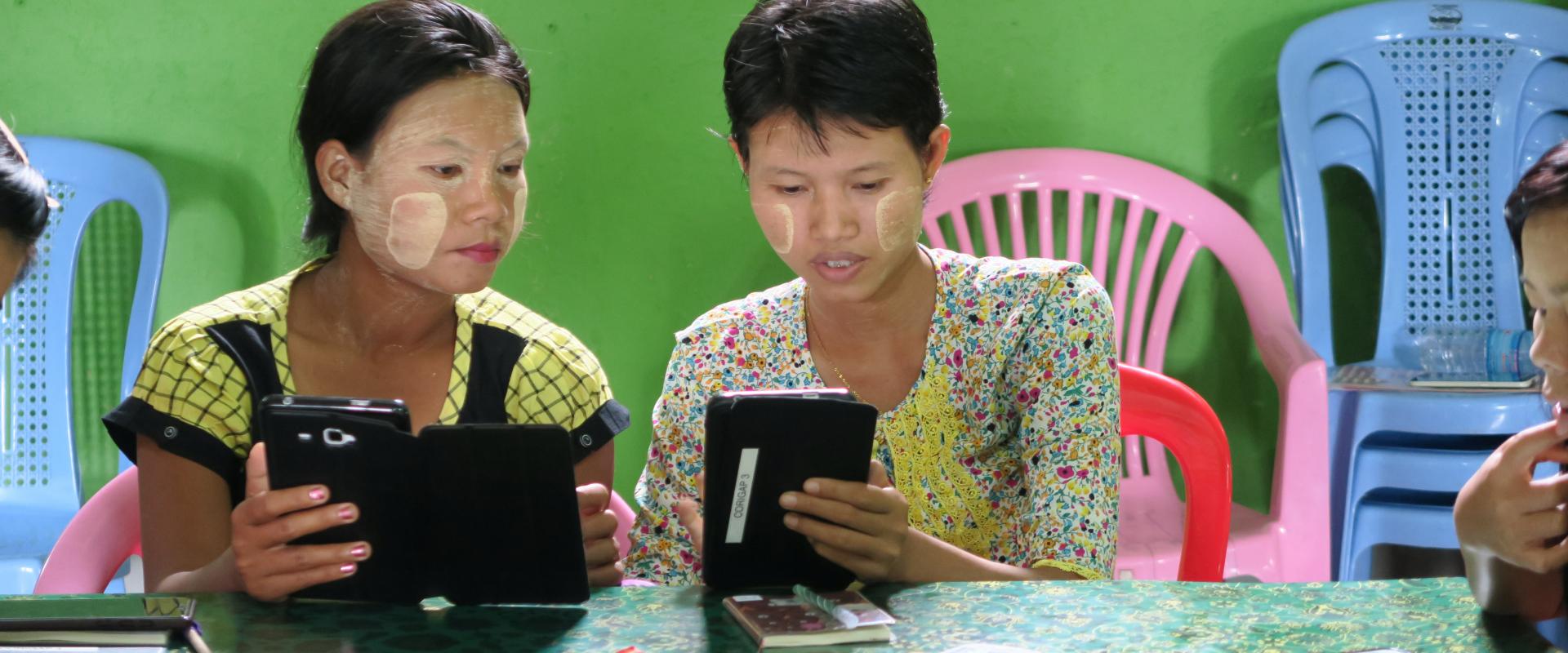These implementation case studies can help projects understand what to expect from the MAD experience.
During the MAD Research Series, four projects were supported by Oikoi to scale out the adoption of Mobile Acquired Data (MAD) in research work across the region. Each of these provides a unique case study into the value and costs in adopting digital data collection including feedback from projects on the additional workloads, difficulties in using the technology and perspective from their frontline workers. The projects covered different types of studies, environments and with teams of varying technical aptitude. These pages provide an overview of each project (at a glance), along with what research activities adopted MAD technology, the difficulty reported by project staff, the experience designing, building and deploying their apps, and the associated benefits, challenges and costs.
|
Location |
Lao Cai province, Hanoi, Ho Chi Minh and Son La cities, Vietnam |
|---|---|
| Systems Studied | Smallholder vegetable production |
| Research Activities | 2 x 2,500 household surveys (rural and urban, baseline and endline); |
| Lead Institution | The University of Adelaide |
| Partner Institutions |
Australia: University of Queensland, NSW DPI, Department of Foreign Affairs and Trade Vietnam: Vietnam Women's Union, Institute of Policy and Strategy for Agriculture and Rural Development, Vietnam National University of Agriculture, Fruit and Vegetable Resource Institute, Soil and Fertiliser Research Institute, National Institute of Medicinal Materials, Plant Protection sub-department of Lao Cai |
| Disciplinary focus | Biophysical (vegetable resource and disease management practices) and socioeconomic (value change analysis and market settings) |
| Project stage during MAD implementation | 3rd year of 4 year project, start of associated PhD study |
| Level of MAD experience of project staff | High technical capacity among researchers but untrained in MAD at the commencement of adoption |
| MAD activities | Rural household survey with short adoption time and urban household survey with a medium (2-3 months) adoption time |
| MAD feedback mechanism | In-app issue reporting form, real-time feedback via electronic messaging, daily reports to research managers, Prof Wendy Umberger and enumerator team as data was being collected |
| Key Lessons |
|
| Project Title | Increasing the productivity and market options of smallholder beef cattle farmers in Vanuatu |
|---|---|
| Location | Espiritu Santo, Vanuatu |
| Systems Studied | Smallholder beef production |
| Research Activities | On- and off-farm participatory research, demonstration and training, livelihoods and production systems monitoring |
| Lead Institution | The University of Queensland |
| Partner Institutions |
Australia: Queensland Department of Agriculture, Fisheries and Forestry, Australian Ministry of Agriculture, Southern Cross University Vanuatu: Ministry of Trade, Commerce, Industry and Tourism, Vanuatu; Agricultural Research and Training Centre, Vanuatu Agriculture College, Ministry of Agriculture, Livestock, Forestry, Fisheries and Biosecurity |
| Disciplinary focus | Multidisciplinary; Livelihoods analysis, cattle economics and value chains, cattle and forage production |
| Project stage during MAD implementation | 1st year of a 4-year project |
| Level of MAD experience of project staff | High technical capacity among researchers, exposure through the Masterclass, but untrained in MAD at the adoption |
| MAD activities | Small scale (36-100 households) livelihoods survey (baseline/endline), farm system survey (baseline/endline), longitudinal cattle production monitoring was developed with a 2-month lead time |
| MAD feedback mechanism | Informal phone conversations and emails, printouts of cattle information sheets for farmers |
| Key Lessons |
|
| Project Title | Improving smallholder dairy and beef profitability by enhancing farm production and value chain management in Pakistan |
|---|---|
| Location | Punjab and Sindh provinces, Pakistan |
| Systems Studied | Smallholder dairy and beef production within mixed crop-livestock systems |
| Research Activities | Meetings and discussions with potential partner organisations for scale-out activities of whole-family extension approach. Desktop survey for initial evaluations of organisation's management and objectives in extension. Review of current dairy-beef value chain literature in Pakistan. Value chain actor interviews to map beef value-chain of Punjab and Sindh. Review current understanding and efficiency in the dairy and beef operations on smallholders farms |
| Lead Institution | University of Melbourne, Australia |
| Partner Institutions |
Pakistan: University of Animal and Veterinary Sciences (Lahore), Sindh Agriculture University Australia: University of Melbourne, Charles Sturt University |
| Disciplinary focus | Value chains research, extension and adoption |
| Project stage during MAD implementation | First year of a four-to-five-year project |
| Level of MAD experience of project staff | Project leader had one year of MAD experience, research staff were new to MAD |
| MAD activities | Survey of value chain actors (farmers, processors & NGOs), monitoring and evaluation of partner organisation extension activities, tracking farmer adoption after extension implementation. |
| MAD feedback mechanism | Surveys provided comparison of farmer-responses with baseline data collected in a previous project. Extension advice for different farmer responses was also pre-programmed into the MAD application and was provided during data collection. |
| Key Lessons |
|
| Project Title | Diversification and intensification of rice-based systems in lower Myanmar |
|---|---|
| Location | Ayeyarwady delta, Myanmar |
| Systems Studied | Smallholder rice production |
| Research Activities | Household surveys, benchmarking farmers' fields and establishment of best practices, on-farm rice and rice-pulse trials, and postharvest management training. |
| Lead Institution | International Rice Research Institute, Philippines (IRRI) |
| Partner Institutions | Myanmar: Department of Agriculture, Department of Agricultural Research |
| Disciplinary focus | Agricultural Economics and Social Science |
| Project stage during MAD implementation | Extension year (4) of 3-year project |
| Level of MAD experience of project staff | Experience with 2 MAD platforms, SurveyBe and CSPro, prior to training in CommCare app building |
| MAD activities | 250 x farmer data sheet (high level endline), 250 x household survey (in-depth endline), monitoring of participation in farmer training and meetings |
| MAD feedback mechanism | In-country researchers reviewed the information daily and debriefed in person with enumerators. |
| Key Lessons |
MAD skills within an institution.
|






